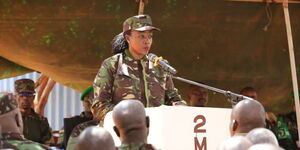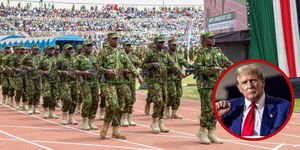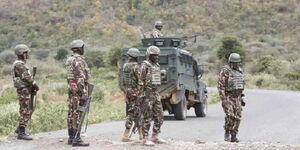The Ethics and Anti-Corruption Commission (EACC) has urged the government to bar police officers from investigating and prosecuting corruption cases.
Speaking on Monday, EACC Vice Chair Sophia Lepuchirit questioned the credibility of the police service to investigate graft cases.
"In every integrity survey that is done, the police department is always top on matters corruption and this means that they cannot be trusted to fight graft," she stated.
[caption caption="EACC chairman Archbishop Dr Eliud Wabukala, with vice-chairperson Sophia Lepuchirit address the media at Integrity Centre, Nairobi"] [/caption]
[/caption]
The commissioner affirmed that economic crimes cases should be left to them and the office of the DPP.
She added: "Economic crime cases should be solely investigated by EACC and the office of the DPP and police should deal with criminal cases alone."
Additionally, the commissioner asserted that despite a shortage of staff in the two agencies, they are still "in a position to investigate and deal with corruption cases."
Ms Lepuchirit exclaimed that the EACC has in the past few months alone helped recover assets worth Ksh4 billion with hundreds of suspects arraigned in court over corruption cases.
Addressing the press in Simba Lodge Naivasha, she revealed that the commission is currently investigating one of the leading banks in the country over Ksh333 million graft.
The commissioner noted that the lack of co-operation by banks remains a major challenge for EACC's bid to fight graft.
She commented: "Millions of shillings are being withdrawn at the flip of the pen and the banks have failed to raise the red flag. This has adversely affected the fight against corruption.
"EACC has for many years been unfairly targeted by some leaders but we are committed to fighting corruption head-on. Corruption is also fighting back," she mentioned.
[caption caption="EACC vice Chair Sophie Lepuchirit"] [/caption]
[/caption]

Govt Imposes Curfew in Sections of Narok County Breaking News











